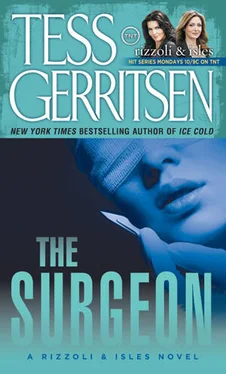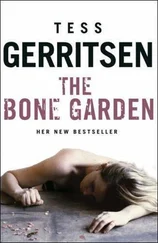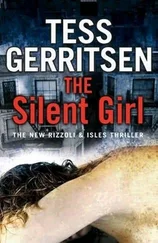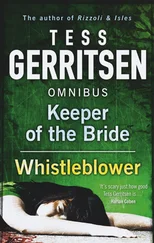“Oh, you always say that.”
“I always mean it, too.” He gave a wave and walked away, thinking: Tonight more than ever.
Where we go depends on what we know, and what we know depends on where we go.
The rhyme kept repeating in Jane Rizzoli’s head like an irritating childhood ditty as she stared at the Boston map tacked on a large corkboard on her apartment wall. She had hung the map the day after Elena Ortiz’s body was discovered. As the investigation wore on, she had stuck more and more colored pins on the map. There were three different colors representing three different women. White for Elena Ortiz. Blue for Diana Sterling. Green for Nina Peyton. Each marked a known location within the woman’s sphere of activity. Her residence, her place of employment. The homes of close friends or relatives. Which medical facility she visited. In short, the habitat of the prey. Somewhere in the course of her day-to-day activities, each woman’s world had intersected with the Surgeon’s.
Where we go depends on what we know, and what we know depends on where we go.
And where did the Surgeon go? she wondered. What made up his world?
She sat eating her cold supper of a tuna sandwich and potato chips washed down with beer, studying the map as she chewed. She had hung the map on the wall next to her dining table, and every morning when she drank her coffee, every evening when she had dinner — provided she got home for dinner — she would find her gaze inexorably drawn to those colored pins. While other women might hang pictures of flowers or pretty landscapes or movie posters, here she was, staring at a death map, tracing the movements of the deceased.
This is what her life had come to: eat, sleep, and work. She’d been living in this apartment for three years now, but there were few decorations on the walls. No plants (who had time to water ’em?), no stupid knickknacks, not even any curtains. Only venetian blinds on the windows. Like her life, her home was streamlined for work. She loved, and lived for, her job. Had known she’d wanted to be a cop since she was twelve years old, when a woman detective visited her school on Career Day. First the class had heard from a nurse and a lawyer, then a baker and an engineer. The students’ fidgeting got louder. Rubber bands shot between rows and a spitball sailed across the room. Then the woman cop stood up, weapon holstered at her waist, and the class suddenly hushed.
Rizzoli never forgot that. She never forgot how even the boys gazed in awe at a woman .
Now she was that woman cop, and while she could command the awe of twelve-year-old boys, the respect of adult men often eluded her.
Be the best was her strategy. Outwork them, outshine them. So here she was, working even as she ate her dinner. Homicide and tuna fish sandwiches. She took a long pull of beer, then leaned back, staring at the map. There was something creepy about seeing the human geography of the dead. Where they’d lived their lives, the places that were important to them. At yesterday’s meeting, the criminal psychologist Dr. Zucker had tossed out a number of profiling terms. Anchor points. Activity nodes. Target backcloths. Well, she didn’t need Zucker’s fancy words or a computer program to tell her what she was looking at and how to interpret it. Gazing at the map, what she imagined was a savanna teeming with prey. The color pins defined the personal universes of three unlucky gazelles. Diana Sterling’s was centered in the north, in the Back Bay and Beacon Hill. Elena Ortiz’s was in the South End. Nina Peyton’s was to the southwest, in the suburb of Jamaica Plain. Three discrete habitats, with no overlap.
And where is your habitat?
She tried to see the city through his eyes. Saw canyons of skyscrapers. Green parks like swaths of pastureland. Paths along which herds of dumb prey moved, unaware that a hunter was watching them. A predatory traveler who killed across both distance and time.
The phone rang and she gave a start, tipping the beer bottle on its side. Shit. She grabbed a roll of paper towels and dabbed up the spill as she answered the phone.
“Rizzoli.”
“Hello, Janie?”
“Oh. Hey, Ma.”
“You never called me back.”
“Huh?”
“I called you a few days ago. You said you’d call back and you didn’t.”
“It slipped my mind. I’m up to my eyeballs in work.”
“Frankie’s coming home next week. Isn’t that great?”
“Yeah.” Rizzoli sighed. “That’s great.”
“You see your brother once a year. Couldn’t you sound a little more excited?”
“Ma, I’m tired. This Surgeon case is going round-the-clock.”
“Have the police caught him?”
“I am the police.”
“You know what I mean.”
Yeah, she knew. Her mother probably pictured little Janie answering the phones and bringing coffee to those all-important male detectives.
“You’re coming for dinner, right?” said her mother, sliding right out of the topic of Jane’s work. “Next Friday.”
“I’m not sure. It depends on how the case goes.”
“Oh, you can be here for your own brother.”
“If things heat up, I may have to do it another day.”
“We can’t do it another day. Mike’s already agreed to drive down Friday.”
Well of course. Let’s cater to brother Michael.
“Janie?”
“Yeah, Ma. Friday.”
She hung up, her stomach churning with unspent anger, a feeling that was all too familiar. God, how had she survived her childhood?
She picked up her beer and swallowed the few drops that hadn’t spilled. Looked up at the map again. At that moment, catching the Surgeon had never been more important to her. All the years of being the ignored sister, the trivial girl, made her focus her rage on him .
Who are you? Where are you?
She went very still for a moment, staring. Thinking. Then she picked up the package of pins and chose a new color. Red. She stabbed one red pin on Commonwealth Avenue, another in the location of Pilgrim Hospital, in the South End.
The red marked Catherine Cordell’s habitat. It intersected both Diana Sterling’s and Elena Ortiz’s. Cordell was the common factor. She moved through the worlds of both victims.
And the life of the third victim, Nina Peyton, now rests in her hands.
Even on a Monday afternoon, the Gramercy Pub was a happening place. It was 7:00 P.M., and the corporate singles were out on the town and ready to play. This was their playpen.
Rizzoli sat at a table near the entrance and felt puffs of hot city air blow into the room every time the door swung open to admit yet another GQ clone, another office Barbie swaying in three-inch heels. Rizzoli, wearing her usual boxy pantsuit and sensible flats, felt like the high school chaperone. She saw two women walk in, sleek as cats, trailing mingled scents of perfume. Rizzoli never wore perfume. She owned one tube of lipstick, which was stored somewhere in the back of her bathroom cabinet, along with the dried-up mascara wand and the bottle of Dewy Satin foundation. She’d purchased the makeup five years ago at a department store cosmetics counter, thinking that perhaps, with the right tools of illusion, even she could look like cover girl Elizabeth Hurley. The salesgirl had creamed and powdered, stroked and sketched, and when it was over had triumphantly handed Rizzoli a mirror and asked, smiling, “What do you think of your new look?”
What Rizzoli thought, staring at her own image, was that she hated Elizabeth Hurley for giving women false hope. The brutal truth was, there are some women who will never be beautiful, and Rizzoli was one of them.
Читать дальше












